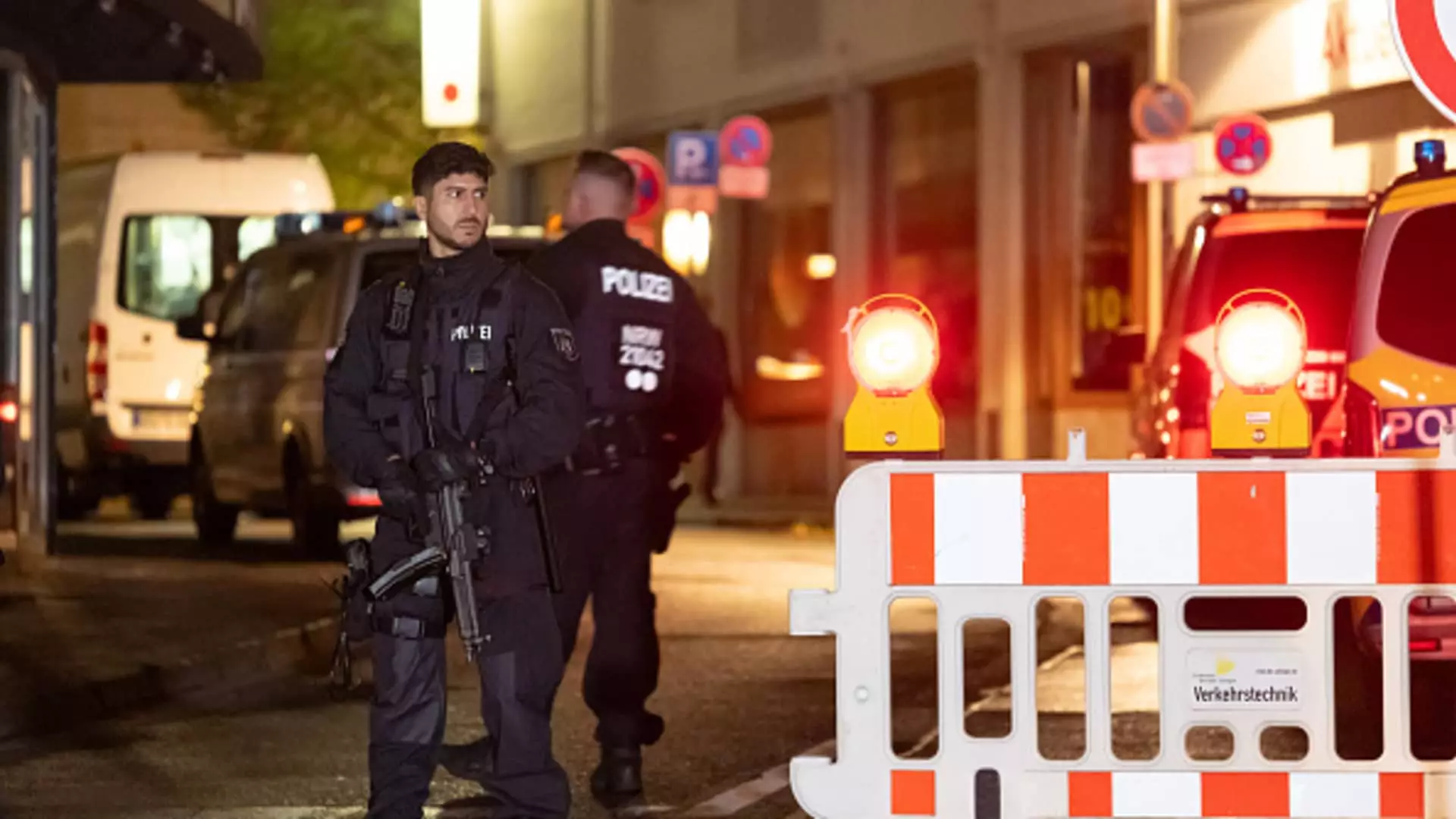The Islamic State group took responsibility for a tragic knife attack in the city of Solingen, Germany, that resulted in the loss of three lives and left eight individuals wounded. The assailant, who the militant group referred to as a “soldier of the Islamic State”, allegedly carried out the attack as a form of revenge for Muslims in Palestine and beyond. Despite ISIS’s assertion, the direct connection between the attacker and the extremist organization remains unclear.
Hendrik Wuest, the premier of North Rhine-Westphalia, labelled the incident during a festival in Solingen as an act of terror. The suspect responsible for the attack was still on the loose, prompting a rigorous manhunt by law enforcement officials. While a 15-year-old individual was detained for questioning, the authorities remained uncertain about their connection to the actual assailant.
Interior Minister Nancy Faeser assured the public that every effort was being made to capture the attacker swiftly. The attack occurred in the Fronhof, a market square in Solingen where a festival was underway to commemorate the city’s 650th anniversary. Despite the festive atmosphere, the violent incident cast a shadow over the celebrations.
Markus Caspers from the public prosecutor’s office in Duesseldorf indicated that due to the lack of an apparent motive and the random selection of victims, the attack was being treated as a potential terrorist act. Eyewitnesses reported that the assailant specifically targeted his victims’ throats, indicating a deliberate and calculated attack.
German musician Topic, who was performing nearby when the incident unfolded, recounted the chaotic scenes that ensued. Initially asked to continue playing to prevent panic, he later had to seek shelter as the assailant remained at large. The abrupt end to the festival left attendees in shock and grief, with the mayor of Solingen expressing condolences to the victims’ families.
The attack in Solingen raised concerns about public safety and the prevalence of such violent acts. Fatal stabbings and shootings are uncommon in Germany, prompting calls for stricter regulations on the possession of knives in public spaces. With upcoming state elections in Thuringia, Saxony, and Brandenburg, political figures seized on the tragedy to highlight issues of immigration and security.
The far-right Alternative for Germany (AfD) party, known for its anti-immigrant stance, used the incident to fuel its campaign rhetoric. Bjoern Hoecke, a prominent AfD candidate, capitalized on the attack to criticize multiculturalism and advocate for tighter immigration policies. The politicization of the tragic event underscored the divisive nature of public discourse in the country.
As the investigation into the knife attack in Solingen continues, the community grapples with the aftermath of senseless violence. The ripple effects of such incidents extend beyond the immediate casualties, shaping political debates and social attitudes. In times of tragedy, unity and resilience are essential in overcoming the challenges posed by extremism and intolerance.

Leave a Reply